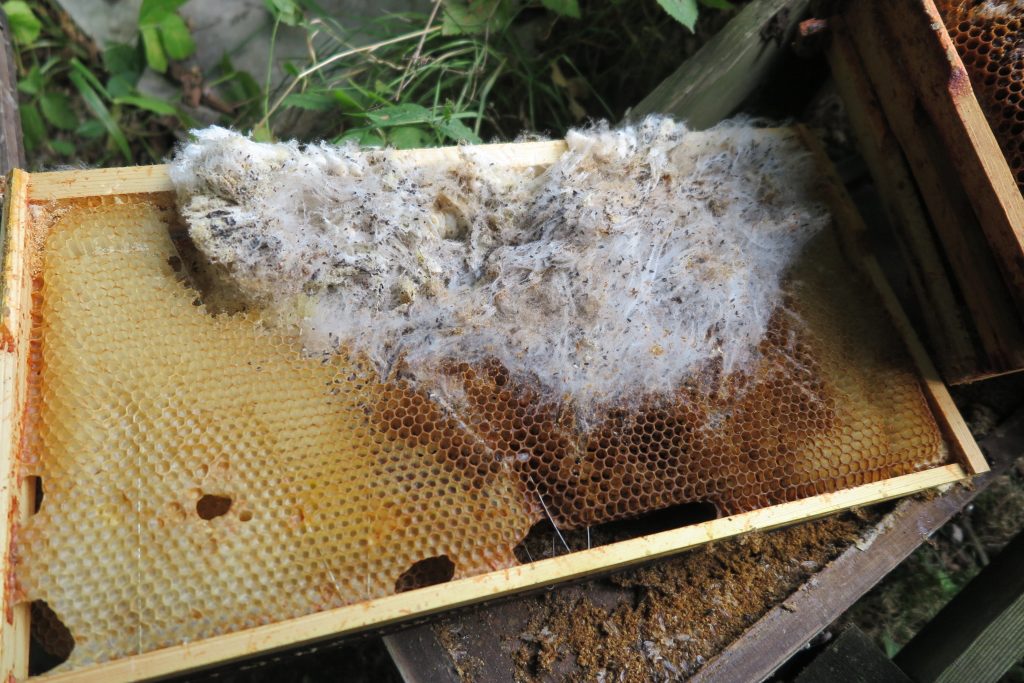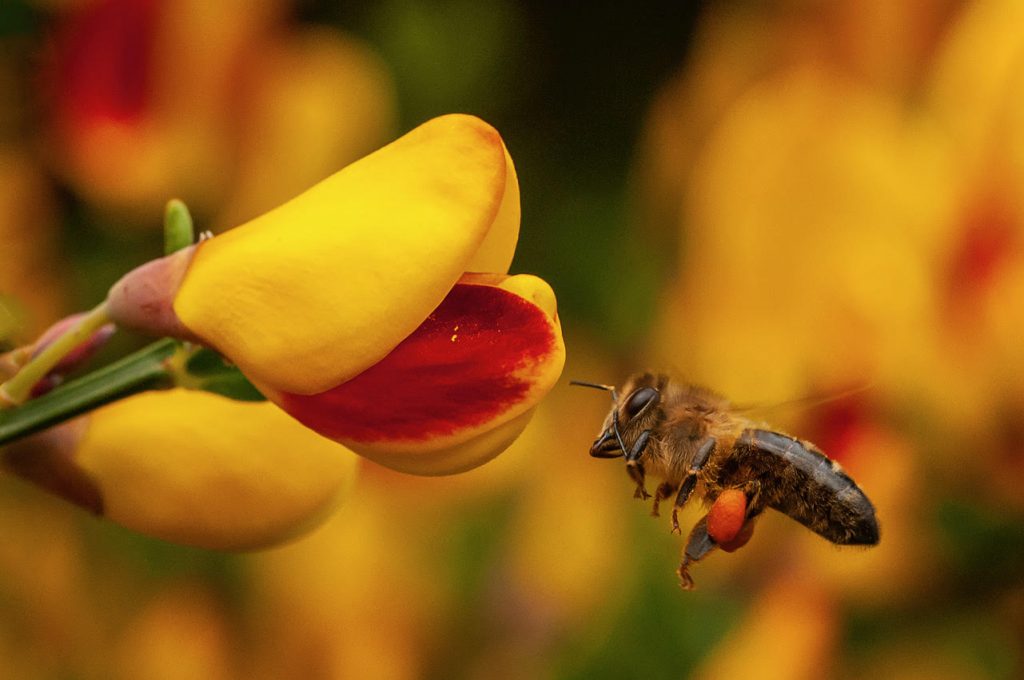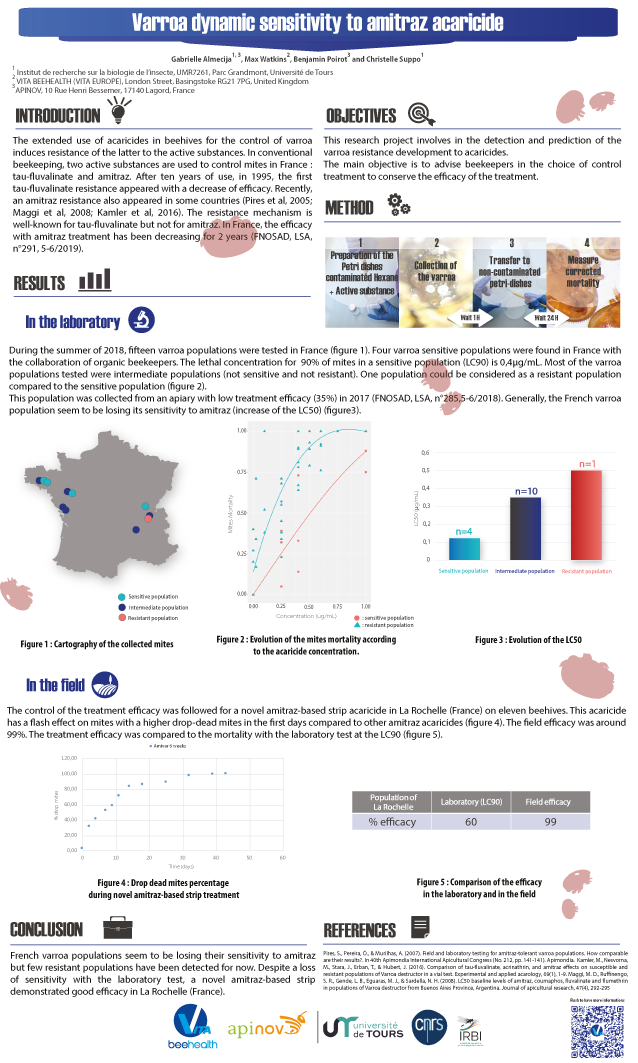Noticias
Moving Apiguard production in times of coronavirus

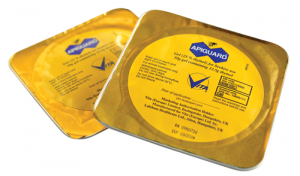 Apiguard, the UK’s most popular varroa control treatment, is back in full production despite lockdown restrictions when manufacturing of the gel was moved to Northern Italy earlier this year.
Apiguard, the UK’s most popular varroa control treatment, is back in full production despite lockdown restrictions when manufacturing of the gel was moved to Northern Italy earlier this year.
When Vita Bee Health decided to begin producing Apiguard, its near-natural varroa-control treatment, in Italy, the company knew that logistical challenges were inevitable and had therefore stockpiled several month’s reserves to ensure that the supply chain would not be disrupted. Then came covid-19 and lockdowns, first in the new production centre in Northern Italy and then at headquarters in the UK. This presented a novel set of experiences, but customers knew nothing of the dramatic behind-the-scenes activity.
Vita Bee Health 2020 photographic competition
The ninth annual Vita Bee Health international photo competition is now open for entries. Each year Vita invites photographs of anything related to honey bees and beekeeping – with a hint that any image that fits a particular month for the resulting limited-edition calendar is of particular interest.
The outright winner of the competition will receive a cash prize and eleven others will also appear in the 2021 Vita Bee Health limiteddition calendar and feature in Vita’s monthly email newsletters. All winners receive a copy of the desk calendar.
The deadline for entries is 25 October 2020. Entrants may submit up to four photos (at least 2 MB in size and preferably as attachments) by emailing them to . Photos may be on any relevant topic relating to honeybees and beekeeping.
New biological wax moth control for USA
Beekeepers in the USA can now save many millions of dollars each year by using B402, a new biological treatment to control wax moth. As a result of rapid and innovative development of the product by honey bee health specialists Vita Bee Health in collaboration with Valent Biosciences Corporation, B402 is now becoming available across the USA.
The new wax moth control product, B402 (also known as Certan), uses Bacillus thuringiensis (Bt), a bacterium commonly found in nature that selectively kills wax moths at the larval stage. The moths, which can destroy honey bee wax combs and even the structure of hives, cause widespread damage and even colony losses for beekeepers. B402 offers efficacy of up to 100% against wax moth larvae.
B402 has recently been approved for use with honey bee colonies by the USA Environmental Protection Agency (EPA) and many individual states have already confirmed that registration, so stock is now being shipped to distributors across the country. B402 is safe to use and harmless to beneficial insects and pollinators. It leaves no chemical residues in wax or honey, and only a single application is necessary to provide complete protection.
Read more…
New lower-cost Bee Gym Slim
 Bee Gym Slim, the enhanced and lower-cost design of the chemical-free varroa-grooming aid for honey bees, has been launched following much positive feedback from beekeepers about the original Bee Gym.
Bee Gym Slim, the enhanced and lower-cost design of the chemical-free varroa-grooming aid for honey bees, has been launched following much positive feedback from beekeepers about the original Bee Gym.
Now available through Vita Bee Health distributors, the new design of Bee Gym Slim is lower cost because it uses fewer parts and is more effective because multiple gyms can be easily inserted into hives.
The new Bee Gym Slim is available in packs of three grooming strips 170mm long, 45mmwide, <5mm high, and provides many more grooming points. The strips are placed on top of the brood frames, instead of on the floor (in contrast to the older version) and fit into bee space between brood boxes or are integrated with a queen excluder. In this position, there is a lot of bee traffic and therefore more opportunity for the bees to groom – and for the beekeeper to see the grooming in action. This positioning also enables the Bee Gym Slim to be easily removed and replaced for cleaning.
Balancing diets for healthy bees
even if you cannot visit your bees so frequently
For the 2020 season, honey bees can benefit from a range of Vita Bee Health feeds, all GMO-free, that enable feeding at almost any time of year.
The new VitaFeed Power and VitaFeed Patty feed supplements have been developed after research which has shown that if foraged pollen is low in protein, the colony suffers because foraging requirements increase disproportionately. If the pollen protein content drops from 30% top 20%, pollen consumption must increase by 50%. That extra pollen-foraging requirement can have very detrimental effects on colony development.
Paulo Mielgo, technical director at Vita Bee Health, explained, “These products aren’t simply feeds. They have been rigorously researched and tested to ensure that they perform to the highest specifications. We aren’t just selling feeds – we are selling research, experience and technology in the form of feeds.”
Studies in Italy and Greece in 2019 have shown that brood area can be increased by 25% when a combination of the new feeds is used in springtime. This results in healthier and more advanced colonies showing other all-round health benefits.
Maintaining quality in the new beekeeping regulatory landscape
Motti Yakubovich, the new senior regulatory affairs and quality manager at Vita Bee Health, aims to ensure the maintenance of product quality and regulatory compliance at a time of change.
One of Motti’s first tasks when he joined the company last year was to help manage the successful technical transfer of Vita’s Apiguard production facilities from Hampshire to Italy. He has also played a key role in the ongoing task of making Vita’s operations and products Brexit-compliant.
Vita Bee Health international photo competition winners 2019
The overall winner of 2019 Vita Bee Health photo competition is Ian Gregory for his image of a foraging honey bee with brimming pollen baskets.
Winning entries, selected by an international panel of judges, feature in the 2020 Vita Bee Health calendar, a pdf file of which can be downloaded free of charge via the Vita gallery.
Everyone whose photograph features in the calendar will receive a free limited edition of the printed desk calendar. Outright winner Ian Gregory also wins a cash prize.
The 2020 Vita Calendar includes photographs by Tessa Milton, Ian Gregory, Geoffrey Leister, Claire Heywood, Margaret Edge, Ann Chilcott, Kyle Riley, Susan Kimber, Kathleen Suddes and Mark Baker.
Foulbrood test kits available again
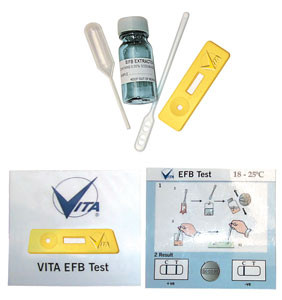 Diagnostic kits to test honeybee colonies for American foulbrood (AFB) and European foulbrood (EFB) are again available from Vita Bee Health after a short disruption to supplies.
Diagnostic kits to test honeybee colonies for American foulbrood (AFB) and European foulbrood (EFB) are again available from Vita Bee Health after a short disruption to supplies.
The Vita AFB and EFB diagnostic test kits enable beekeepers and bee inspectors to test for AFB and EFB in honeybee larvae and to obtain the results easily and immediately in the apiary. They are as simple to use as pregnancy test kits and are a low cost, fast and reliable way to test for foulbrood.
The instant results mean that if either foulbrood is detected, action can be taken immediately. If no foulbrood is detected, expensive and unnecessary action can be avoided.
Canada welcomes return of Nosema treatment
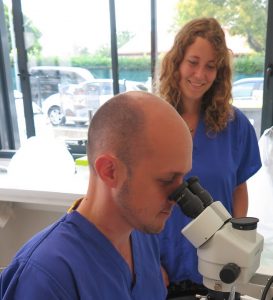 A very effective treatment for Nosema, a deadly disease of honey bees, is now available again in Canada after intensive work by Vita Bee Health in conjunction with the Canadian Honey Council.
A very effective treatment for Nosema, a deadly disease of honey bees, is now available again in Canada after intensive work by Vita Bee Health in conjunction with the Canadian Honey Council.
Fumagilin-B is a tried and tested preventative and curative antibiotic treatment for Nosema apis and Nosema ceranae. It first became available in the 1950s and was widely available in many countries until mid-2018, when the previous manufacturer, Medivet, ceased operations.
With the unavailability of fumagillin, beekeepers have been able to combat Nosema only by indirect methods such as protein feed supplements to boost immune defences, effective varroa control and regular comb changes. These are not always effective under harsh winter conditions. In Canada, because of the extreme low temperatures and long winters, the beehives have to be sealed and insulated from October to March – a long time for the bees to be confined and an ideal environment for Nosema to increase and spread through the colony. Canadian beekeepers were expecting severe winter colony losses if Fumagilin-B remained unavailable for this autumn/fall treatment season.
Now Canadian beekeepers again have access to fumagillin, manufactured in Canada and supplied by Vita Bee Health. The treatment should be administered with autumn/fall and spring feeds as necessary and, as ever, it is vital that beekeepers follow label directions precisely.

